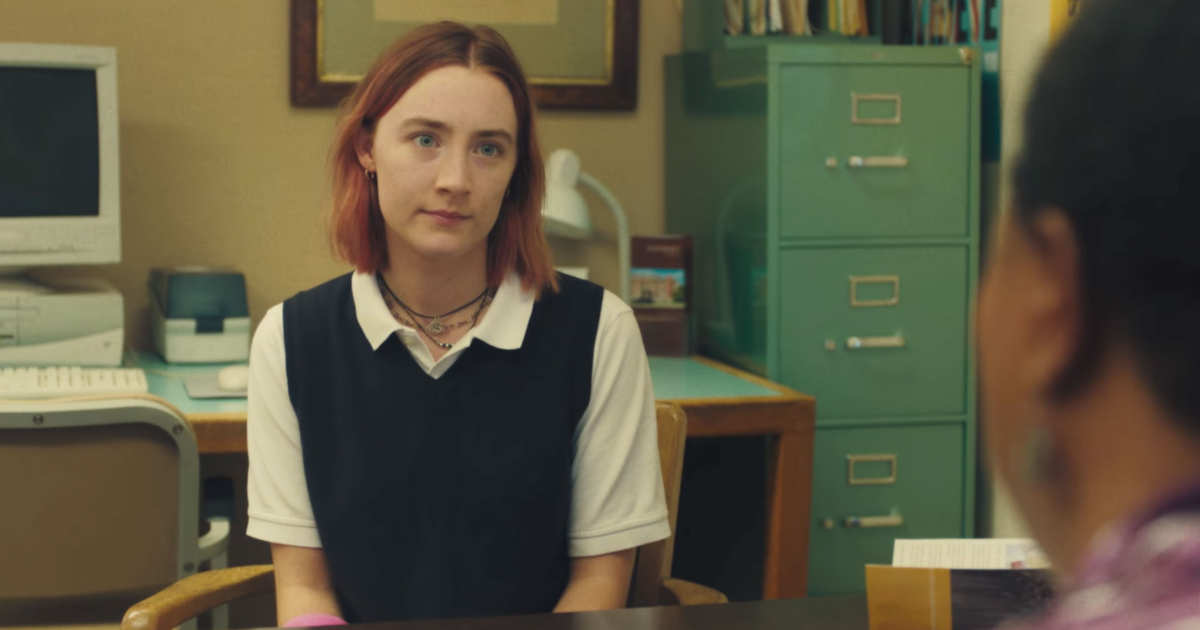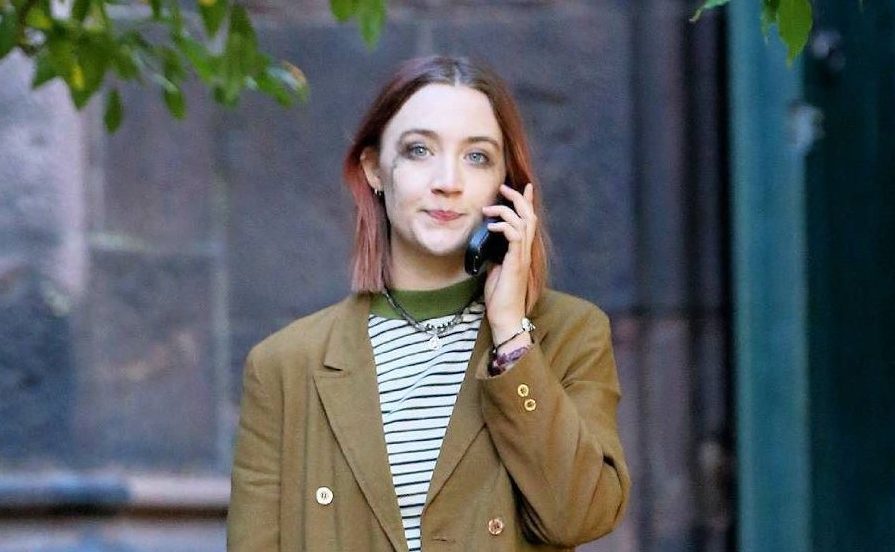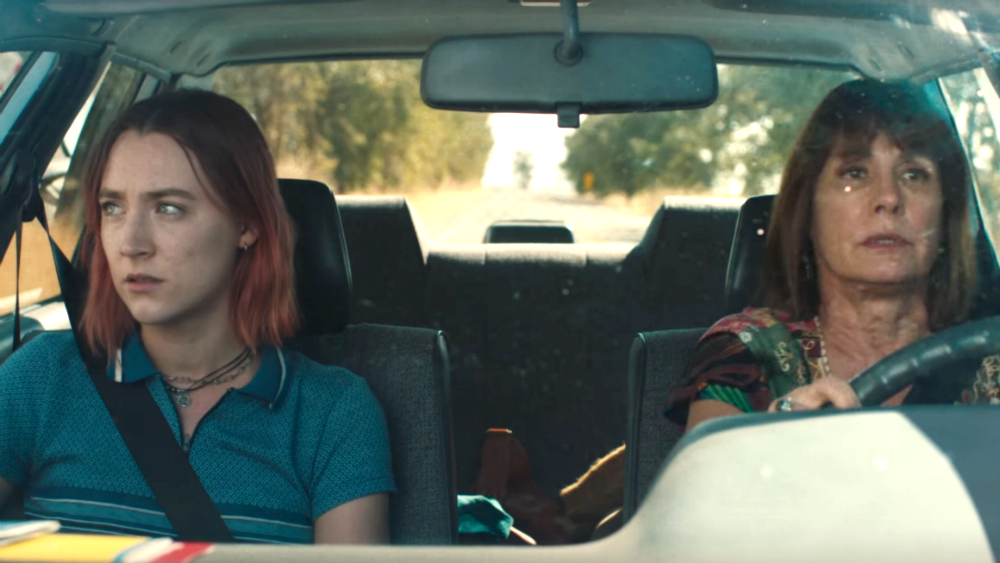Greta Gerwig’s directorial debut, ‘Lady Bird’ is a coming-of-age drama that hits home on a number of levels. It is a story where a girl’s personal arc takes precedence over her romantic quests and sexual life. It is about her relationship with her mother, rather than a popular boy who she wants to fall in love with her.
The film goes deeper than the shallow waters that most teen dramas have been wading in for so long, and that’s what makes it such a brilliant watch. The ending adds another layer to the story, and here, we discuss what it means. If you haven’t seen the film yet, come back to this article later. SPOILERS AHEAD
Plot Summary
Lady Bird lives in Sacramento, but she doesn’t like it one bit. She is waiting for her final year in school to be over while focusing on her grades and applying for colleges on the East Coast because she wants to go as far away from the town as possible. Meanwhile, her mother tries to make her face reality, but this only causes more conflict between them.
The Ending

While celebrating after the graduation ceremony, Danny mistakenly lets out the details about the waitlist. This angers Marion, who feels betrayed by Lady Bird going behind her back, and she stops talking to her. Meanwhile, Lady Bird starts working the jobs. Her 18th birthday comes, and she smokes a cigarette and buys a Playgirl magazine because now she can. Her place in the university has been confirmed, and she has started packing. Her parents drive her to the airport, but her mother still won’t talk to her. However, Marion breaks down while driving away and comes back to say goodbye to her daughter, but it’s too late.
In New York, Lady Bird settles down and begins the new chapter of her life. She finds the letters that her mother had tried to write to her. Her father salvaged them and gave it to her because he wanted Lady Bird to know how much her mother loved her. As the time passes by, she starts to miss home.
What does it mean for Lady Bird?

When we first meet Lady Bird, she doesn’t seem to like her hometown. She wonders if she looks like someone from Sacramento, and her mother replies that she is from Sacramento. And here is the summary of the entire film for you.
In the first scene itself, Greta Gerwig presents us with a character who is not happy with her current situation. She is desperate to get out of her hometown, and “anywhere but here” is what eats at her. She doesn’t care what her prospects are and if it is realistic for her to leave Sacramento. She is caught up in the fancy of leaving home and living on her own, in a different place, which has “more culture”. Her mother, on the other hand, accepts things as they are. She doesn’t exaggerate her daughter’s abilities, she doesn’t feed her unrealistic fantasies and she encourages her to accept herself for what she is rather than what she thinks she should be.
In the next hour-and-a-half, the film further explores the grounds of what Lady Bird wants and how it reflects on the relationship with her mother. It presents both of them in the same light. Sometimes, they appear to be the same person, and yet they are so frustrated by each other that fighting is more common between them than having a normal conversation. Things go up and down where they are pushed and pulled away from each other. They are like poles of the magnet; sometimes, they are the same and repel each other, and sometimes, they are different and find comfort nowhere else but in one another.
A similar chemistry occurs between Lady Bird and Sacramento. All the time that she talks about the town, it feels like she would like nothing better than getting out of there. You almost believe at some point that she hates the place, as she most certainly hates living on “the wrong side of the tracks”. She wants to be different, larger than life, perhaps- a feeling common in teenagers. She easily develops a crush for cute boys and has a romantic perception of deflowering. Hating the place where you grew up also falls into the same category.
While it is through her ramblings about how bad she wants to get out of Sacramento, we also find her in love with the small things about the place. The Big Blue house that she’d kill for, the driving around the town, the goofing around and naming of stars- there are the little things that she pays attention to. And as a wise soul tells her, love and attention go hand in hand.

We can also interpret this love-hate relationship in a different manner. While shopping for her prom dress, Lady Bird and her mother find yet another reason for disagreement and tension. She says she wishes Marion liked her, to which she replies that she loves her, of course.But the question is not of love here. “But do you like me?” she emphasizes.
While liking and loving appear to be on the same plane, they are two very different things. You ‘fall’ in love; it is something that you have no control over. It is presented in the same bracket as the things that you can’t choose for yourself, just like the family you get and the town you grow up in. Liking on the other hand is developed, like friendships. It requires work, which means it goes more analytical than love. You can find pros and cons in people and things and decide whether or not to like them. Love doesn’t follow the same path.
Just like Marion loves her daughter but she doesn’t necessarily like her all the time, the same goes for Lady Bird and Sacramento. She never knew how much she loved the place until she was out of there, despite never much liking it. The comfort of familiarity hits her when she is in a different city where she can get lost in the crowd. In the same vein, her mother’s love and her own love for her mother wash over her after she is miles away.
In the final monologue, she acknowledges her love for both of them. She thinks about the first time she drove around the city and how different it felt to her while also being all the same as it had always been. And the fact that she wanted to share this with her mother is a testament to how close they actually are to each other. She also addresses herself as Christine, which means she has shed over the Lady Bird phase, and has finally got around to accepting herself as is rather than what she thinks she should be.
Read More: Movies Like Lady Bird

You must be logged in to post a comment.